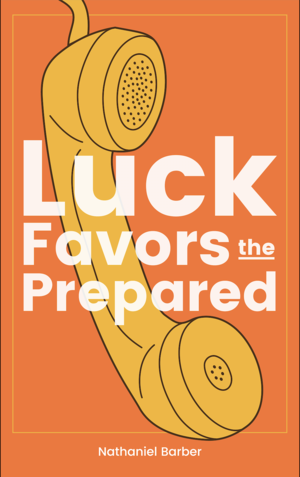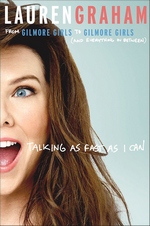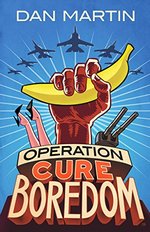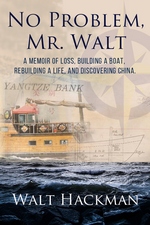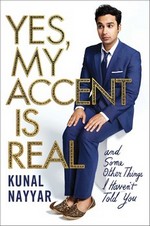The Delicacies of Writing Non-Fiction:
What to Leave In or Omit and Why Asking Permission Is the Greatest Hurdle to Telling a Great Story
Luck Favors The Prepared is a collection of nonfiction short stories. But, that ‘nonfiction’ part has been a tricky business. Nonfiction is rarely flattering. Seldom does its characters move about as gracefully or as tactfully as we believe we move about our own lives. Most people long for privacy—while the goal of nonfiction (as is the goal of any writing) is the opposite of privacy, to reach an audience. Additionally, the claim (and the sting) of nonfiction is that these are stories which have actually happened, concerning people who actually existed—people with feelings and, possibly, access to legal counsel.
What if I get it wrong? What if I muddy up the dates or fail to nail the dialogue verbatim? These, while valid points, were the least of my concerns. The ultimate hang-up was whether a person would be not flattered by the character I’d made of them.
The conclusion I always reached (which was no) held up the writing of these stories for many years, until, at long last, I was able to call a truce with my inhibitions and get to writing.
What explains the shift?
For starters, these are good stories so they were not easily dismissed. Given time and pressure, eventually their persistence forced me to reconcile this seeming insurmountable hurdle to nonfiction: the spectre of fairness.
Readers of Luck Favors The Prepared will notice I traffic in some incredibly unsavory characters. Was it fair of me to write them so? Probably not. People, however, have had more than enough time to get along without fairness. Indeed, we’ve lived in a dearth of fairness since time immemorial. It is audacious of my characters to demand fairness would make a historically rare visit just to save their hide.
The best we can do is be proactive, and behave ourselves. If you’re good, most assuredly, nobody will write about you.
We’ve developed many ways to live well, even in this absence of fairness. Chances are you’ve had a brush with Christianity, the founding tenets of which warn we should (to paraphrase a number more eloquent passages) watch our ass. If you feel exempt from the offerings of Christianity, the scientific community has an equally potent formula coined by Newton’s third law: every action has an equal and opposite reaction. There are some still who feel left behind by both Christianity and science, for them I can only hope they have a magnanimous sense of humor. After that, you’re S.O.L.
The idea is, in a world where what goes around, comes around—fairness is a red herring.
It took me longer than it should have to come to this conclusion. When I did, it was like a fresh breath of air. Which is why I am now gleefully submitting Luck Favors The Prepared for publication, just under the wire, during this lapse in the Universal Calendar when fairness seems to have checked-out.
If nothing is fair, what then, will keep the world from coming apart?
In this supreme absence of fairness, Christianity, science or humor implores us to act with kindness, beauty and grace. It is, you could say, a last-ditch stopgap to prevent everything from going to pot. This is an idea I can get behind in a major way. It has allowed me to finally locate my voice—and write nonfiction to my heart’s content. But to do so compassionately, in spite of appearances to the contrary.
In the spirit of kindness it is important to note: while I have not shied away from capturing a character at their very worst, that unfortunate snapshot is strictly happenstance. I am not aiming, specifically, to capture a character at their worst. Though, to be fair, I am not straining to capture a character at their finest either. One should not aim to catch a character behaving any which way. They should only aim to capture the story. Kindness should be, above all else, a commitment to the story.
While many of my characters found themselves illuminated in such a harsh light, kindness suggests that (hopefully) they were just going through a rough spot. Their only real crime (in the universal sense) was they experienced a fevered lapse of judgement in the company of someone with such an impeccable memory.
Kindness forces us to consider the angels of our better nature, that people are great, complex creatures. We are brimming with contradictions. Sometimes we are terrible and evil. Other times, we are beautiful and reaffirm all of the wonderful things.
How does one know when they’re writing from a place of kindness? Crap stories are usually unkind. We’ve all heard an embittered divorcee seethe about their poisonous ex-wife or husband. It’s nothing you would treat yourself to after a day’s work. That’s what red wine is for.
Nonfiction without kindness reads flat and vindictive. Any too-thin story is so obviously a sad revenge-vehicle to facilitate a tantrum. It is painfully uninteresting. Yes, sometimes unkind nonfiction is fun to read. But it’s a dirty, bitter pill and should be enjoyed sparingly.
Are the stories objective?
Just because I am the narrator, doesn’t mean I am exempt from the critique of these narratives. To lean faithfully on the story’s foundation means I should just as freely throw myself on the same pyre to which I’ve thrown these poor characters. Could I have been more critical of myself, the character? Maybe, but that’s above my paygrade.
Writing nonfiction is to shoulder into unfairness. So the very least a nonfiction author can do is make well and sure they’re writing from a place of kindness and objectivity. Or, at least, try real hard to do so. This is why I still write with boundaries. Very strict boundaries in fact. There’s much more I could write, but it’s a waste of time if there’s no redeeming story.
I am forty years old now. Does an inability to understand and reconcile the dueling perspectives of fairness and kindness explain why it’s taken me so dang long to offer Luck Favors The Prepared? Probably not. But lay off, I’m short on time. I suppose I could try harder, to completely throw myself at producing books, which is a lot like working a second job without pay. Try explaining that to a wife and a daughter.


